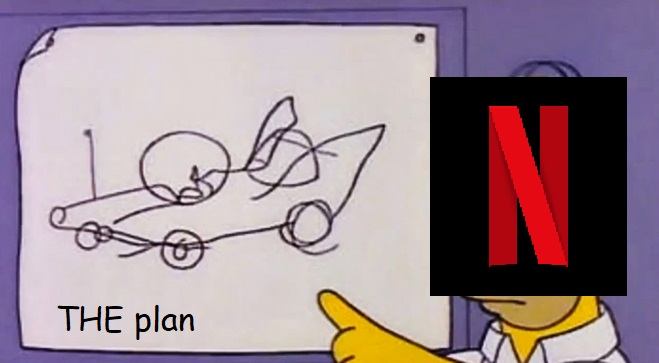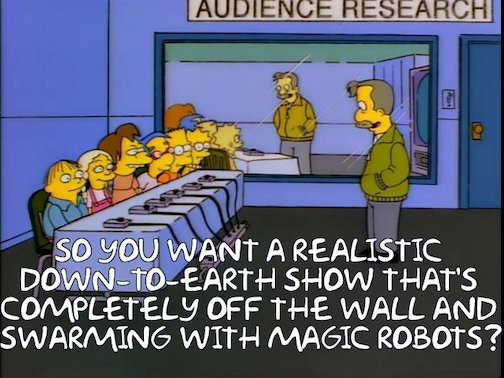When Netflix offered itself to BlockBuster in September of 2000 for just $50 million, laughter was the answer from former CEO John Antioco further declining another offer to take BB’s titles online through Netflix. Antioco’s tenure of BB would be short after that moment as the company pitched into a nosedive for obvious reasons bleeding liquidity and popularity, one of them being the pursuit of old business models avoiding any foresight of tomorrow’s changes, but the most important was ignoring how technology had changed society at the turn of the century with internet and its many applications.
On the other hand, Netflix had embarked on a successful journey after that September of twenty two years ago, first with in-mail DVD shipping and then with streaming their content over a computer, until today where any electronic device linked to the web can play what the company has to offer. Success allowed Netflix to produce its own format rather than just publish movies or tv series from other sources, they did so by marketing their IP trying to surf the latest socio-political trends of the last five years, and this allowed their brand to remain relevant across the expanding popularity of social platforms reaching billions of people worldwide. The perfect communication machine.

Growing pains
As the company expanded its roster investing many millions of their own into new productions, prices slowly went up from their original monthly fee of $8 to the $15.49 of its premium streaming quality -almost doubling- but it’s understandable as times do change having inflation playing its part and new content costs quite a bit to make. This left Netflix vulnerable in the last few years with production targeting specific themes of culture, sexuality, ethnicity, politics, making it a risky bet because social issues have been galvanizing left and right the population with a crescendo in recent times. Also, their decision to sever ties with actor Kevin Spacey for his allegations and therefore abruptly ending the hit House Of Cards, have played a major role in the company’s health.
This vulnerability turned the company from being a successful business model to a marketing machine willing to produce fast and loose content trying to please everyone in the audience over the latest trends. While it seemed to have worked in the beginning, now it’s not anymore and Netflix has been pulling the plugs on several projects that didn’t meet their expectations including series amid production, ratings have been dropping and the viewers are not willing to pay for content that caters to a specific niche of society, leaving the largest share of customers questioning recent price changes and subscription plans
About subscription plans, Netflix is introducing a basic one for $6.99/month with ads running inside. Ads? Yes, ads playing while you watch what you just paid and subscribed. Wasn’t the plan to pay for content having ads removed in the first place? Yes, it WAS, now no more. This is setting back Netflix by putting it in par with other solutions hooked to your living room TV set, now there is little difference of choice from your cable provider and a streaming service.
Why all of this? I’m assuming that Netflix is running low on options to fill back its treasure room that has been running low over the last years because of poor decision-making over their productions. Movies and TV series cost a lot, so much they have been bleeding Netflix for sometime without making back what they thought they would; who to blame? We can only blame the pervasive pursuit of marketing strategies and poor numbers that shift like a wind socket in all directions without any prior notice. Marketing departments play their game far from the field, they gather data according to trends with a superficial approach to the user’s needs until it’s too late and “Whoopsie Daisy!” the cookie crumbled.

Do your research
When creating or improving a product/service, the first thing to start with is research to acquire new data discovering the necessary. In User Experience you cannot afford to skip your research process otherwise you don’t have anything to work with, much like bricks when building a house, and you don’t want to deliver something useless that just costed a hefty budget. Netflix should have researched better data over what the users needed without focusing just on trends, and should have listened to paying customers on what they really wanted to consume; instead the company seemed to have audited outside their user base and based their marketing research in an echo chamber. Imagine running a restaurant near a university or college campus, sourcing your recipes to the tune of meatloaf, mashed potatoes, green peas; albeit tasty options they don’t reflect your consumers’ wishes and habits. Youngsters don’t want those food options because they’ve been eating them for years at their parents and grandparents house every Sunday meal of their lives. Teenagers and young adults know pretty well they can eat anything without worrying about putting on weight or thinking about health-related issues, so they go ahead and chomp down burgers, fried food, and guzzle down sugars like no tomorrow, so let them be, let them eat like that in their youth because they can only do that once in their lifetime. But Netflix doubled down and insisted on serving youngsters tofu and cold soups telling them they are healthy and that’s what the cool kids eat.

Issues
There are other important issues reaching the core of Netflix business structure that through time did not improve the company’s position, these five points are an influence to their brand name:
1. Netflix thrived when there were no competitors
At the beginning of this post I wrote about the early steps of Netflix and how it was the only company on the market, they did the right thing defying business giants like BlockBuster questioning their very own existence and eventually crushing them; this left a huge void to fill and so they did fill it alone without any metric to test their efforts. However, their rapid success overshadowed some important priorities such as which direction to take, but most importantly the did not establish a focus on a small/specific product line to consolidate and create the business identity, but rather constantly throw things at the wall hoping for something to stick.
2. Netflix thrived thanks to others’ IP
The floodgates of fame and wealth opened thanks to productions crafted by other companies, think about The Office, 30 Rock, The Parenthood, these just from NBC/Universal -going as back as 2011- along with vintage TV series from our youth. It was a major hit for Netflix especially because portable devices like smartphones and tablets were new technologies capable of streaming contents from the web, this helped a lot in their growth process.
3. Others watched and learnt
Disney amid others like Hulu, NBC/Universal, Amazon, silently watched from afar and started taking notes on the future of entertainment away from the traditional TV cable distribution. Star Wars was coming back with three major movies continuing the saga, including season series and minor movies that would connect in between all the lore; so Disney bought all George Lucas Star Wars assets and removed their IP from others platforms and went on their own with their Disney+ streaming service. They’re plan wasn’t a fluke.
4. Others want their IP back
As we mentioned the competition catching up by making their own club house, brands like NBC/Universal want their IP back to be streamed exclusively on their platform. The Office is one of them along with 30 Rock, two very successful series that have been collecting accolades for years and years; now that they’ve departed Netflix the company tried to fill their voids with their own productions without the expected returns.
5. Stranger Things won’t last forever
This show is amazing and nostalgia is always a safe bet for brands, but how long will it last? Titles like Stranger Things have huge success until they don’t have it anymore, because producers push to saturation trying replicating through the seasons what made titles triumphant in the first place; however, the audience can easily catch that drift and there’s the high risk of emulating the many mistake of Game Of Thrones over their lasts three seasons. I assume Netflix has already something in the works to replace Stranger Things in the near future when its magic will eventually fade out, and this big next production should be founded on deep entertainment beliefs to be a worthy title for the company recuperating their wealth back.
Conclusions
I canceled my Netflix subscription in 2018 for lack of quality content and also because having Prime with Amazon was a better deal. I did enjoy streaming movies and TV series I hadn’t watched in a long time, but I grew tired of parsing through Netflix’s catalog where titles of average and low production were the majority, I assumed they belong to some forgotten VHS store placed in a strip mall in the suburbs, something like an old BlockBuster. I thought it was just me believing Netflix would allow you to watch any movie you wanted, working as a library where you will eventually find something to enjoy, unfortunately it wasn’t the case and there were families, friends, colleagues, where they all believed that too when they subscribed for their first time to the platform. Netflix doesn’t work like a library where you pull out of memory lane a title from your childhood; it’s also understandable for technical and practical reasons why this doesn’t happen. My criticism towards Netflix is them caving in too many trends that seem to be deep but are not while trying to cater and please everyone in the audience; the company should roll back at what made them popular but it’s not possible to set back the clock as competitors have grown through time -so much- Netflix should diversify its business offer by providing something others can’t get their hands on for a while, they should entertain the idea of streaming different live events like e-sports, concerts, creating live shows, because if paying a monthly subscription to watch ads is now the thing for Netflix, they might as well become a TV network and change their format once and for all.
Some reading about Netflix:
https://about.netflix.com/en/news/announcing-basic-with-ads-us
https://thenextweb.com/news/netflix-subscriber-losses-dont-mean-streaming-is-dying